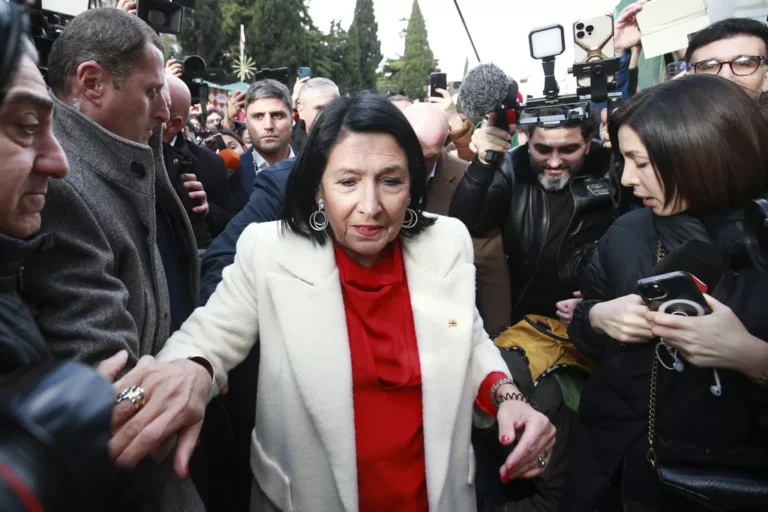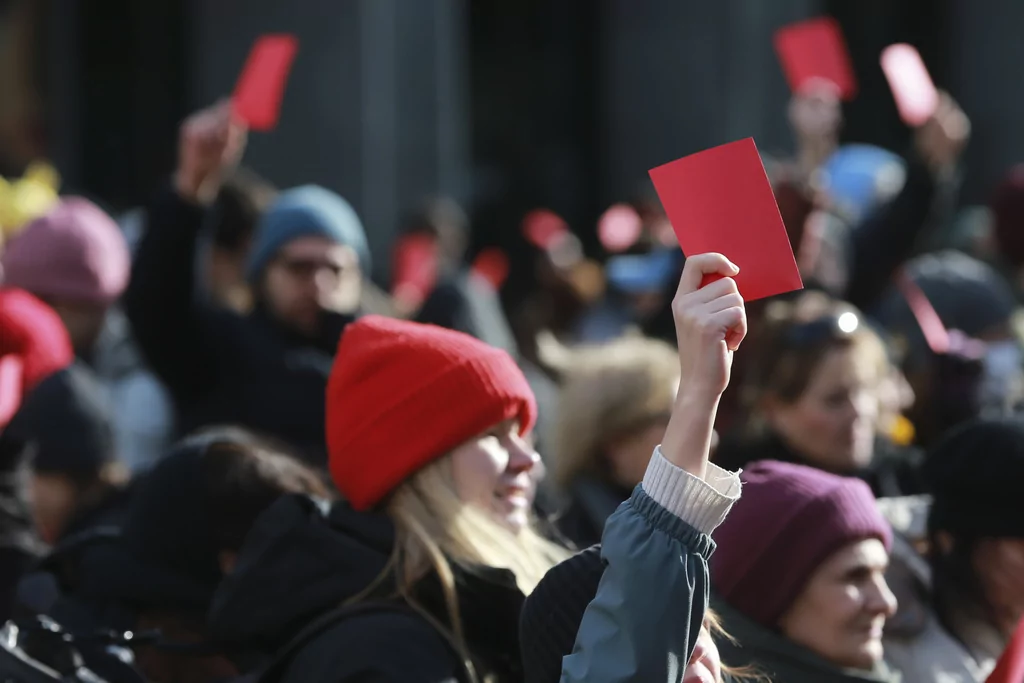
Former soccer star Mikheil Kavelashvili was sworn in as Georgia’s new president on Sunday, stepping into a largely ceremonial role as the nation grapples with widespread protests and accusations of electoral fraud.
Outgoing President Salome Zourabichvili, a pro-European Union leader, has refused to concede legitimacy to her successor. Addressing supporters outside the presidential palace in Tbilisi, Zourabichvili declared she would remain the “legitimate officeholder” despite leaving the residence.
WHAT TRUMP HAS PROMISED TO DO ON DAY 1 IN THE OVAL OFFICE

WHICH JAN. 6 DEFENDERS COULD SEE PARDONS
“I am taking legitimacy with me, I am taking the flag with me,” she said, vowing to continue the fight for fresh elections.
Kavelashvili’s rise comes during mounting tensions over the decision by Georgian Dream, Kavelashvili’s ruling party, to freeze the country’s EU membership talks until 2028. The move has ignited mass protests, with demonstrators accusing the government of steering Georgia closer to Russia. Western observers have criticized the October parliamentary elections, which paved the way for Kavelashvili’s appointment, as deeply flawed.

Protesters gathered outside parliament during the swearing-in ceremony, holding red cards in reference to Kavelashvili’s soccer career. Police clashed with demonstrators, briefly detaining several individuals. Meanwhile, Kavelashvili dismissed the backlash, stating that Georgia’s survival depends on “peace and development.”
The political standoff has drawn international scrutiny, with the United States imposing sanctions on Georgian Dream’s founder Bidzina Ivanishvili, accusing him of orchestrating the country’s shift toward Moscow. Opposition leaders argue that with Kavelashvili’s appointment, Ivanishvili now wields unchecked control over the country.
CLICK HERE TO READ MORE FROM THE WASHINGTON EXAMINER
Georgia’s constitution enshrines EU membership as a national goal, and polls indicate overwhelming public support for joining the bloc.
Zourabichvili has accused Georgian Dream of betraying this aspiration, calling their actions a “deliberate sabotage” of Georgia’s European future.







